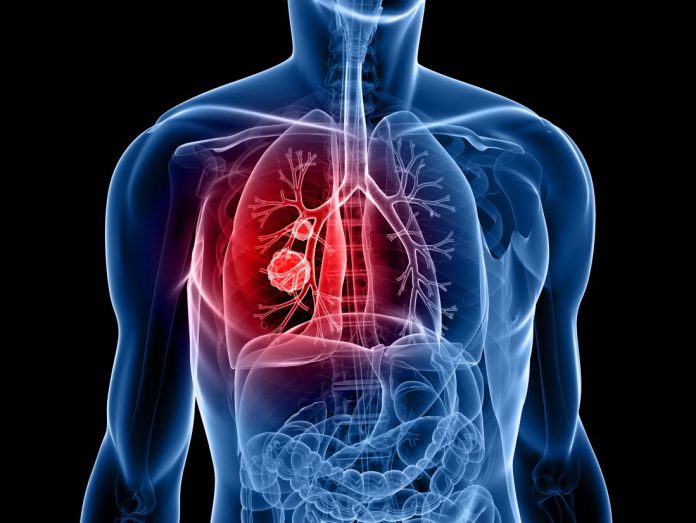Iressa (gefitinib) a kinase inhibiting drug has just received FDA approval as a “first-line” treatment for patients with metastatic non-small cell lung cancer. The drug works to block proteins that promote the development of cancerous cells with certain epidermal growth factor receptor gene mutations. Eligible candidates for the drug will be determined through use of the therascreen EGFR RGQ PCR Kit, which will enable doctors to identify these cells.
According to the National Cancer Institute, lung cancer remains the leading cause of cancer-related death in the US. Although the disease is still more common in men, the number of deaths from lung cancer in women is on the rise. In fact the NCI now estimates that close to 222,000 people in this country will be diagnosed with lung cancer, with more than 158,000 fatalities by the end of this year alone. In addition, they reported that about 10% of non-small cell lung cancer (NSCLC).
Prior to its approval, Iressa’s efficacy and safety were determined in a multi-center, single-arm clinical trial of 106 patients with previously untreated, EGFR mutation-positive metastatic NSCLC. Participants were given 250mg Iressa once daily. End results showed that tumors “shrank in about 50% of patients after treatment and this effect lasted an average of 6 months, “ noted Richard Pazdur, M.D., director of the Office of Hematology and Oncology Products in the FDA’s Center for Drug Evaluation and Research.
However, it was also noted that while the most common side effects of Iressa were diarrhea as well as rash, acne, dry skin and pruritus (itching of the skin often caused by allergies).Serious side effects in some patients included interstitial lung disease, liver damage, gastrointestinal perforation, and eye disorders
Iressa is marketed by AstraZeneca Pharmaceuticals in Wilmington, DE, while the therascreen EGR RGQ PCR Kit is manufactured by QIAGEN Manchester Ltd., based in the United Kingdom.








